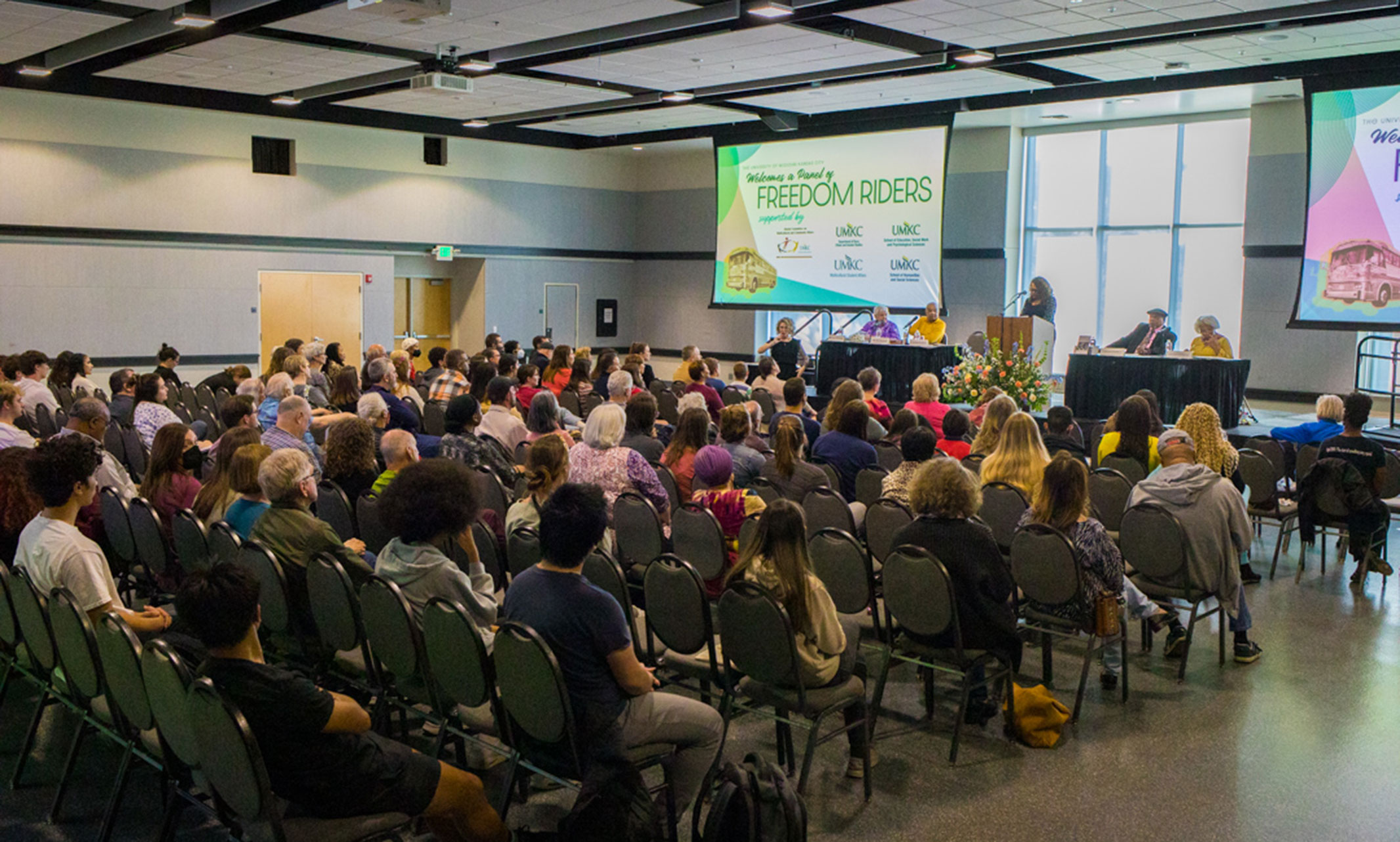Four Freedom Riders, civil rights activists who participated in bus trips through the American South in 1961 to protest segregated bus terminals, spoke to their experiences at multiple events around the city, including the UMKC Volker campus.
Here are just a few of their stories:
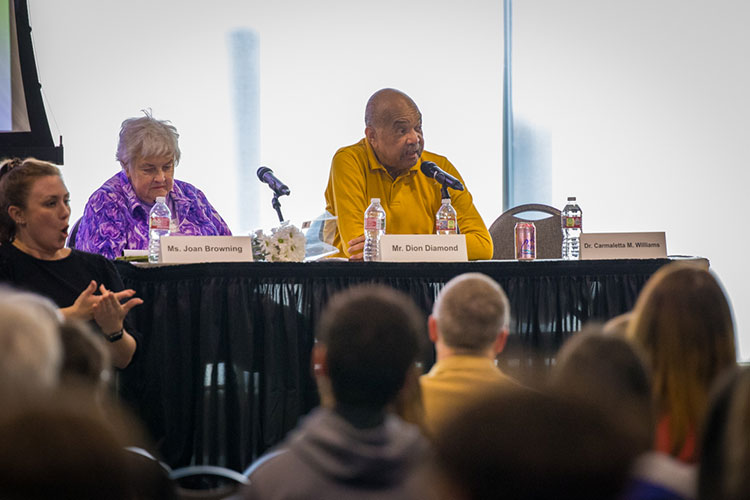
Dion Diamond began conducting sit-ins as a teenager in his hometown of Petersburg, Virginia. His activism continued at Howard University. He participated in a Freedom Ride from Montgomery, Alabama to Jackson, Mississippi.
“How naive we were,” Diamond said. “We thought the cops and the national guardsmen were there to protect us a little bit. We know that many of them, as soon as they got off the bus , put on their robes, white sheets over their bodies. I have to tell you that it's like the change of the guard at Buckingham Palace with the cops in front of the bus, cops behind the bus, National Guardsmen on the bus and helicopters flying overhead. Let me tell you, we felt safe. As soon as we’d get off the bus, we were arrested under the charge of breach of peace.”
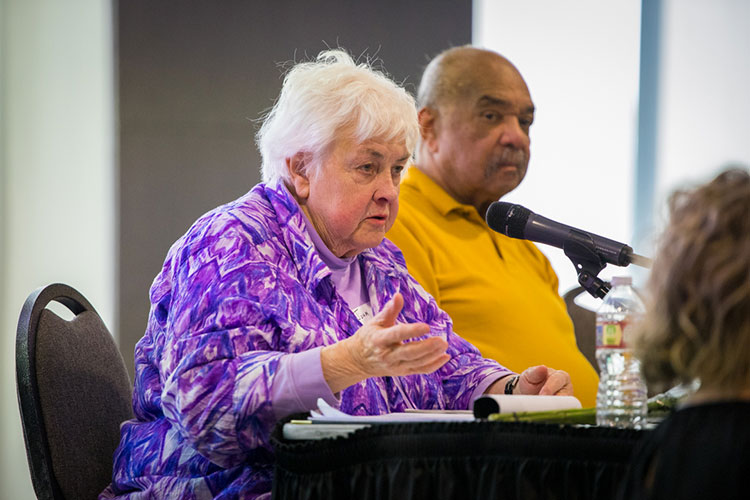
Joan Browning participated in the sit-in movement, picketed segregated stores and facilities, and was the “last Freedom Rider,” the final person selected to join the last Freedom Ride of 1961.
“I never speak without quoting Miss Ella Baker, who was one of those most prominent teachers of young people,” Browning said. “One of the things that she taught me was that social change really comes from ordinary people. You don't have to be rich or famous or go halfway around the world to make the world better. You start right where you are with the people that you are associated with. That’s the key to expanding social justice.”
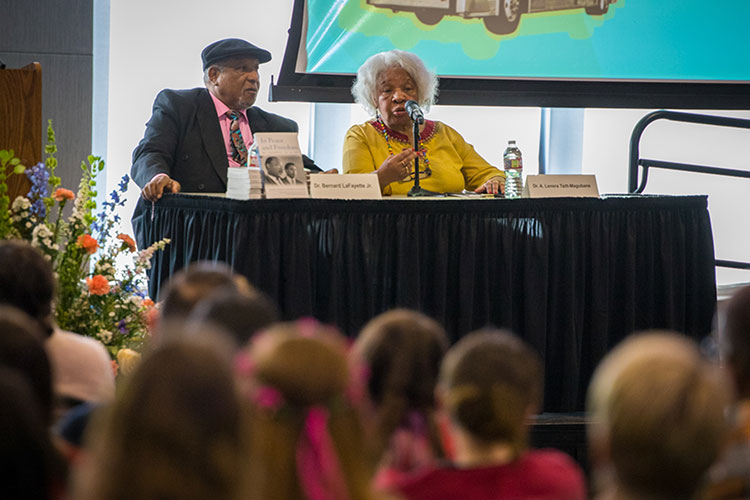
Lenora Taitt-Magubane, Ph.D., became involved in the civil rights movement while attending Spelman College in Atlanta, where she became a member of the Student Nonviolent Coordinating Committee. Her first sit-in occurred in March 1960 when she participated in an attempt to integrate the Atlanta Municipal Auditorium. Two weeks later, Taitt-Magubane was arrested at a lunch counter sit-in with 77 other students and Martin Luther King Jr.
“It's interesting how things happen,” Taitt-Magubane said. “I was involved in the movement while I was an undergrad, and we planned the movement. One of the house mothers, for example, because we were going out to meetings and coming in very late, gave us the key to the dormitory so we wouldn't wake anyone up. We could go and come as we pleased. And if we were going to do anything, we would confide in her and let her know. We had our books, and we got our assignments. I remember drawing up a schedule, which had study periods, so we weren't just sitting in jail. We had a period of time where we had to study so that when we got out, we could continue classes. And what the faculty did was, they had special classes in their homes and in the school in order to help us catch up and to make sure that we were prepared for our exams. So somehow, all of us graduated.”
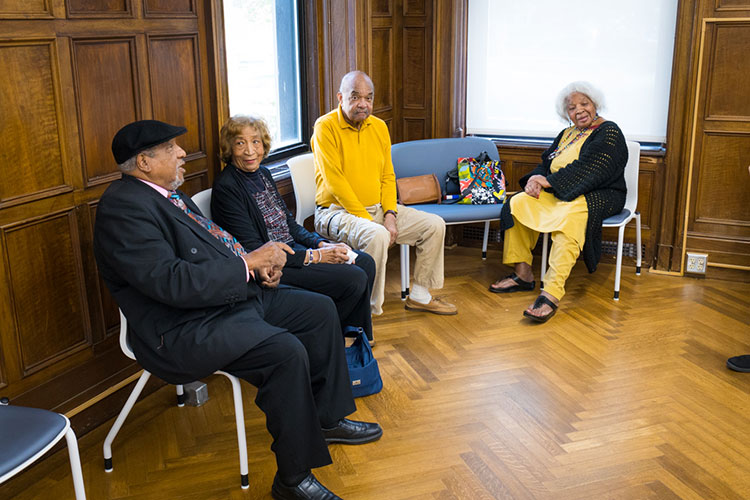
Bernard LaFayette Jr., LHD, has authored several works about his long involvement in the American Civil Rights Movement, and his new memoir is “In Peace and Freedom: My Journey in Selma.” The book shares the story of his work as one of the primary organizers of the Selma voting rights movement and the Selma-to-Montgomery marches.
“I needed to get parental permission,” LaFayette said. “So what I did was I wrote to my father down in Florida, and I sent the papers to be signed for him to send them back. And I was the first one in my family to go to college. I assumed he might think it was something related to, you know, financial aid or something like that. I didn't hear anything from him, and time was running out for me to be able to get the application in on time. So, I call on the phone, and I say, ‘Daddy, did you get that letter sent to you that I sent special delivery?’ And he said, ‘Yes, I did get a letter.’ I say, ‘Oh, I'm glad you got it. I thought I got lost in the mail. Could you sign it and send it back right away?’ There was a moment of silence before he said, ‘Do you think I didn't read it?’ I said, ‘Could you just sign it and send a special delivery back so I could get it in right away?’ And you know what his response was? ‘Do you think I'm going to sign your death warrant?’ That's the way he interpreted getting on a Freedom Ride.”
Carmaletta Williams, Ph. D., Chief Executive Officer of the Black Archives of Mid-America, moderated the panel. The event was co-sponsored by the School of Humanities and Social Sciences; the School of Education, Social Work and Psychological Sciences; the Department of Race, Ethnic and Gender Studies; and the UMKC Alumni Association Multicultural and Community Affairs Committee. It was cohosted by Multicultural Student Affairs.
The full panel can be viewed online.

